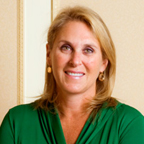 To put my thoughts into context, I offer the following assertions:
To put my thoughts into context, I offer the following assertions:
- Our public education system is failing;
- Incremental change to a failing system is the same as making no change at all;
- Kids today spend—on average—seven hours each day interacting with and through digital media;
- The digital world has become the “new vast wasteland” unless, of course;
We seize the opportunity to build quality, engaging digital content that reaches, teaches, and optimizes the skills and talents of the rising generation.
The phrase “generation gap” hasn’t gotten much mileage since the 1960’s, but it applies to the phenomena we experience today. Kids born post-1985 are digital natives. Most are blissfully unaware that questions have not always been answered immediately via Google search. Parents, teachers, and other authority figures intertwined with this generation are, at best, digital ex-pats. Where kids go when they surf the net, play games, and network on Facebook appears to the older generation to be a travelogue to places unknown and unknowable.
Therein lies the gap. Adults have vague notions about where kids go on the net. They wonder: Is digital technology a threat? A waste of time? A direct path to attention deficit disorder? Reasonable questions, to which we have very few answers.
While many view the digital world as an evil interloper to more pastoral time, when we read and played and had more face-to-face contact, no one can quarrel with the fact that the digital world is here to stay. It has radically changed the way we gather and present information, communicate with one another, connect with issues and people and locations on the opposite side of the globe.
The digital world is evolving, and it is growing in only one direction: larger. My contention is that it needs to grow in another direction as well: better.
School, as Connie Yowell of the MacArthur Foundation reminds us, is now one node on kids’ learning network. Information is being sought and conveyed to them 24/7—on computers, hand-held devices, iPads, on-demand television, and phones.
This incredibly powerful tool offers unparalleled potential to teach, to encourage kids to imagine, produce, participate, practice, and create. But only if kids can find their way to engaging, enriching, wonderful content.
Many elect a position of neutrality when it comes to assessing Internet content, particularly when it comes to products claiming to be “educational.” But it is challenging to both kids and adults to negotiate the overabundance of information available, to arrive at sites that genuinely capture minds and imaginations. And these places exist.
Non-profits, commercial companies, university laboratories, game producers in the entertainment field, and even those who work to shape and promote popular culture have an unprecedented opportunity: to help cultivate, curate, and distribute digital tools that ask users to do more than shoot targets and collect tokens.
While education in the future will no doubt seek to blend the right amount of time, talent and technology, we need to work intelligently on all three tracks. Learning extends well beyond classroom. We have a chance to reach an ever-growing number of kids, to connect with them digitally and to help equip them with tools to make them contributing citizens, strong and innovative workforce members, aware and responsible human beings.
This can — and will — happen, if we have some familiar, highly respected, cool faces leading the charge of the digital revolution.
Susan Crown is the Chairman and Donor of SCE, a social investment organization that connects talent and innovation with market forces to drive social change. SCE’s Digital Learning program focuses on the potential of digital media technologies to help children learn and practice both traditional and 21st century skills. Ms. Crown serves on the boards of major corporations including Illinois Tool Works and Northern Trust Corporation, and as a Vice-Chair of Rush University Medical Center, Trustee of the Natural Resource Defense Council, and a director of CARE, USA. She served for 26 years as Chairman of the Arie and Ida Crown Memorial, a foundation that focused on urban education, human services, healthcare, cultural arts, and the Middle East, and for 12 years as a fellow of the Yale Corporation.

